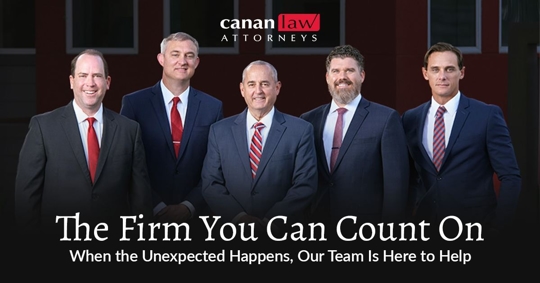This story brought to you by Canan Law, voted best St. Augustine Attorney in 2012.
If you are interested in learning more, the St. Augustine criminal attorneys of Canan Law can review your records and determine whether they are eligible for sealing or expungement. In addition, we may be able to recommend ways to help you become eligible for this legal option.
Why do I have a criminal history record when the charges against me were dropped/dismissed?
Florida criminal history records are public unless the record is sealed or expunged. A criminal history record is created when a person is arrested and fingerprinted, and includes the disposition of that arrest, whether it is a conviction, acquittal, dismissal of charges before trial, or other disposition.
What is the difference between having a criminal history record sealed vs. expunged?
When a criminal history record is sealed, the public will not have access to it. However, certain governmental or related entities have access to sealed record information in its entirety. When a record has been expunged, those entities which would have access to a sealed record will be informed that the subject of the record has had a record expunged, but would not have access to the record itself without a court order.
How many dates of arrest can I have sealed or expunged?
The eligibility criteria includes the requirement that the applicant be able to attest that he or she has never previously had a record sealed or expunged in Florida or in any other State. This means, in effect, that a person may only seal or expunge one arrest record in one proceeding.
A record that is initially ineligible for expunction (e.g., where adjudication is withheld) may become eligible after it has been sealed for 10 years. However, a person may not seal or expunge one arrest record and then, later and in a different proceeding, ask to have a different arrest record sealed or expunged.
What charges may not be sealed?
A list of the disqualifying charges can be found here.
In addition, if a person has been adjudicated guilty of any criminal offense in any jurisdiction (or adjudicated delinquent for any felony or for certain specified misdemeanors), whether or not related to the charge(s) that the person is applying for, the record is ineligible for sealing and the application will be denied.
What charges may be expunged?
The same eligibility requirements which apply to sealing also apply to expunction, with certain additional requirements. Any charge, which resulted in a withholding of adjudication or in an acquittal (not guilty verdict) after trial, may not be expunged unless and until it has first been sealed for at least 10 years. A charge which was dismissed before trial (e.g., no information, nolle prosequi, no bill, etc.) may be expunged immediately provided all charges related to the arrest were so disposed of, and the record is otherwise eligible.
What type of background check is conducted by FDLE to determine my eligibility to have a criminal history record sealed or expunged?
FDLE conducts criminal history record checks in Florida through the Florida Crime Information Center (FCIC), national record checks through the National Crime Information Center (NCIC), local Court databases, and driving history checks through the Florida Department of Highway Safety and Motor Vehicles (DHSMV). These databases are utilized to determine the eligibility of an individual to have a criminal history record sealed or expunged.
How long does it typically take to receive a response from my application for a Certificate of Eligibility?
The current processing time at FDLE is ninety (90) working days or less from the date the application is received, processed, and mailed back to the customer. If the application is not complete at the time of submission the application will be returned. This will cause the application process to be delayed beyond the ninety (90) working day period.
The sealing or expungement of criminal records in Florida requires knowledge of both the law and the procedures involved. Consultation with a criminal defense attorney can greatly facilitate the successful completion of the process. Please call the St. Augustine criminal defense attorneys of Canan Law at (904)824-9402 to schedule an initial consultation about sealing or expunging a criminal record in Florida.
Call us at (904) 849-2266 or stop by our offices at 43 Cincinnati Avenue in downtown St. Augustine if you have any questions about criminal cases.
Canan Law, the most respected team of attorneys in St. Augustine, keeps you informed with blog posts discussing legal terms and Florida court cases that matter to you. Ask your legal question today with our website’s live chat feature!



